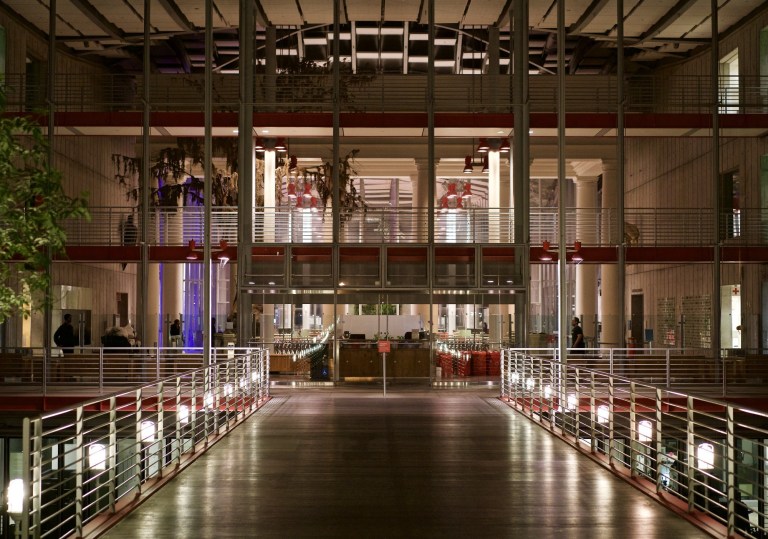Jonathan Foley is the Executive Director of the California Academy of Sciences, the previous director of the Institute on the Environment at the University of Minnesota and the founder of the Center for Sustainability and the Global Environment at the University of Wisconsin. In many ways, Jon is one of the foremost thinkers and actors about the science of sustainability.

But Jon has nothing even resembling the air of an operator or empire builder. He’s candid, provocative, and personable. After our interview at the Cal Academy, Jon invited me to visit the museum, and along the way was stopped by three elderly patrons trying to find the way to the roof. Jon said goodbye to me, and walked them to the elevator. It’s this kind of relatability and keenness for people that, in part, make Jon’s efforts to build connection and community so successful. Jon’s also a great photographer, as seen in the images he kindly shared with Forecast.
Jon grew up in Maine, loving the natural world and knowing that his passion lay in science. But that’s not to say that his early years were idyllic. As described in a moving post on his blog, The Macroscope, Jon’s mother died from ALS when he was only 17, and his father descended into alcoholism. In some of her final words, Jon’s mother made him promise to do the best that he could, for the world.
That’s a big load to take on, and John’s pathway to carrying it took him through an early career in pure physics. But that seemed, in the end, too abstract. One discussion with particle physicists highlights the problem:
I kept on asking ‘why are we doing this’ … and 20 really smart people with PhDs … none of them can answer that question
Jon moved on, but the immediate pathway still wasn’t clear:
I wanted to be an astronomer, a marine biologist and an ecologist all at the same time
Eventually, John found inspiration in the work of Bob Dickinson, even though he was working with paleoclimatologist John Kutzbach in grad school. He went on to make some major advances in adding the biosphere to climate models, for example in the development of the IBIS model. Yet …
I was kind of a misfit in grad school … hanging out with all these ecologists
Maybe a result of being a misfit, or perhaps because he has “a little bit of academic ADD”, Jon moved on to trying to understand the emerging issues surrounding sustainability, politics, economics, and physical sciences. Rapidly, he began to realize that science wasn’t the whole story, and that our political and economic systems in fact tend to go out of their way to ignore physics and, more importantly, ethics.
Jon’s major academic question before coming to the Cal Academy was something on the order of “how can we feed humanity without destroying the planet”. Agriculture, to degrees that are still not broadly appreciated, is a huge strain on the planet:
From a biodiversity, water, land, and future climate change perspective [agriculture] is the number one planetary emergency
After years of making major scientific advances but frustratingly limited broader impact, it was time for a change. The position at the Cal Academy arose — and with some prodding from his family — Jon ultimately accepted the rather huge leap.
Now, Jon is taking the Academy forward in some amazing ways, guided by their awesome mission statement: “To explore, explain and sustain life on Earth”. Some of the projects:
- Explore the mesophotic coral ecosystem
- Develop innovative coral restoration approaches
- Make the Cal Academy open to every child in the Bay area, with no barriers from cost or transportation
- Expand the audience by a factor of 100
- Make a photo-realistic coral experience for the Academy’s planetarium, and share it with every school in the nation
- Become a partner with media organizations around the world
- Inspire a renewed sense of wonder in world, with the online magazine Biographic
Not bad for the first two years in the job!
Especially now, science museums — comparatively removed from politics, often supported by private not government funding, and still trusted by the public — are a crucial leg supporting our understanding of humanity’s place in the world. As Jon says
The hard part is telling great stories … but the megaphone is cheap
Let’s do what we can to support the great stories coming out of places like the Cal Academy!